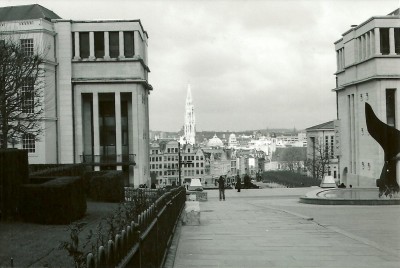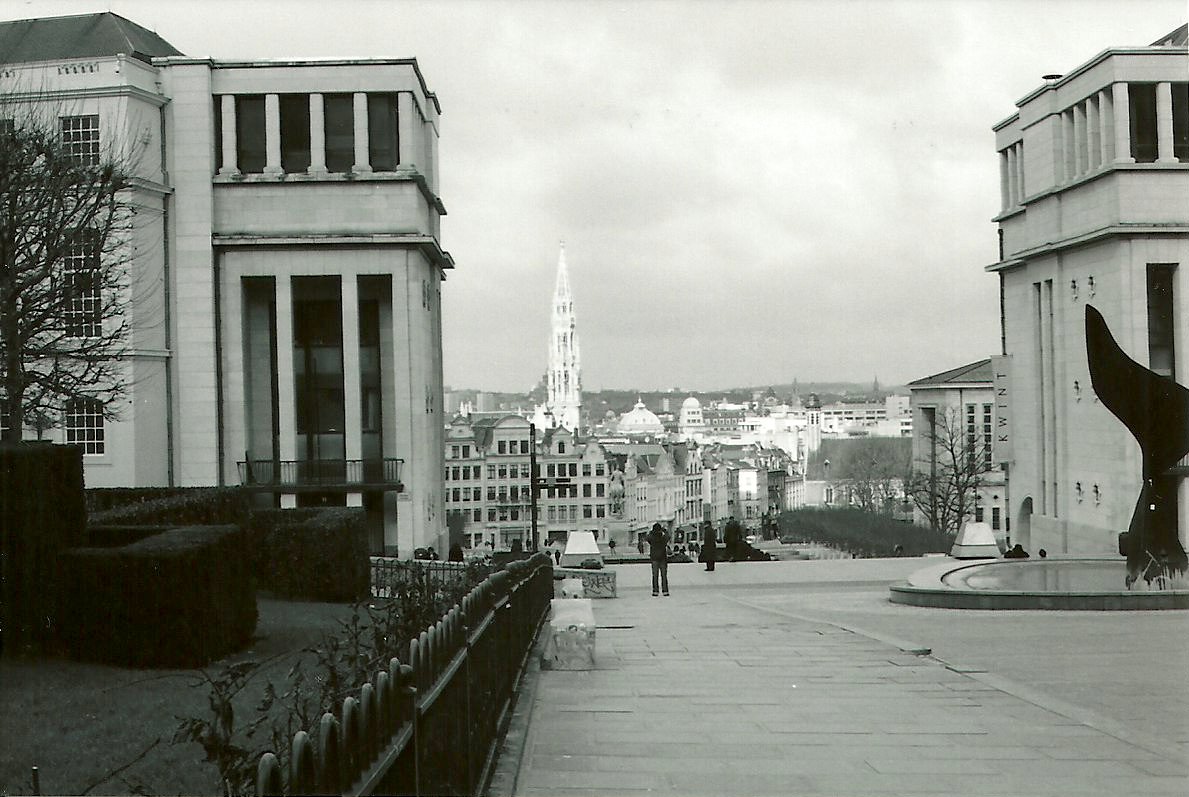In 1996, I moved to Brussels. In 2000, I left. In 2007 and 2011, I went back again, both times for only a few short days.
I have no Belgian ancestry or citizenship, but I’ve always felt a little bit Belgian — it’s hard not to, when it played such an important role in my developmental years. So as the years have gone by, I’ve observed one of the two homelands of my heart from afar, struggling with internal politics and, more recently, a rising reputation as the heartland of European terror.

In 2011, I went to the Jewish Museum of Belgium for the first time. When a gunman killed four people there in 2014, I mourned as a Jew and as a Belgian. Over the three days of national mourning Belgium has declared for these latest attacks, I will mourn too.
Israel is not the other “homeland of my heart” — that honor belongs to Canada — but I follow its politics and current events too. It was deeply disturbing to see, almost immediately after news of the Brussels bombings broke, people drawing links between terrorism in Belgium and terrorism in Israel as if they are at all the same.
It started when a friend (also a former ex-pat in Brussels) messaged me to ask if I knew any good Israeli news sources because a classmate’s response to the news was “Belgium today, Israel every day.”
This sentiment was echoed by Netanyahu during his morning speech to AIPAC: “The chain of attacks from Paris to San Bernardino, from Istanbul to the Ivory Coast and now to Brussels, and the daily attacks on Israel, this is one continuous assault on all of us,” he said. “In all these cases, the terrorists have no resolvable grievances. What they seek is our utter destruction.”
This is a major rhetorical manipulation of the political situation in Israel, and it’s frankly unbecoming of a world leader. Palestinian terrorists in Israel are not motivated by the same things as the radical Islamic terrorists who have attacked Beirut, Paris, San Bernardino, Istanbul, and Côte d’Ivoire. Palestinian terrorists have a resolvable grievance. The problem is that Israel doesn’t want to resolve it, and it’s disingenuous for Bibi to pretend otherwise.
Would terrorism in Israel, from Jews or Arabs, end with the beginning of two states? Probably not. Domestic terrorism isn’t foreign to most of the world, particularly Israel’s friend the U.S. — and I’m not talking about radicalized Muslims, I’m talking about homegrown white, radical Christian terrorists who believe that the government must follow their beliefs. The parallel in Israel is homegrown radical Jewish settlers who defend their “right” to the West Bank with violence and murder.
The key difference between radical Islamic terror and the terrorism that takes place in Israel is twofold. First, terrorism in Israel is carried out by two parties antagonizing each other, and by extremists on both sides who see a physical entity — the Land of Israel, or Palestine — as something to be fought over. This isn’t the case for Islamic extremists, who face repercussions from governments and traditional militaries rather than from other extremists.
Second, Palestinian terrorists and Jewish terrorists would by and large both say they have resolvable grievances — or they once did, and now the grievances no longer seem resolvable by peace, and so they’ve turned to violence. Palestinian terrorists seek a Palestinian state on this particular land. Jewish terrorists seek the same land for a Jewish state or kingdom. The “war on ISIS” is often presented more as a war of ideology than of geography, and fought militarily. The same cannot be said of the Israeli-Palestinian conflict, which is over physical land and largely fought through ideology that then sparks physical violence.
All this is to say: I am deeply disappointed, though not surprised, that Netanyahu has chosen to ignore the context and particularities of the conflict fought in his state every day in favor of demonizing and minimizing Palestinian concerns as Muslim extremism. Brussels is not Israel. These terrors are not comparable. I don’t believe it’s appropriate to compare tragedies at any time — but in this particular case, Netanyahu is off the mark.
Chloe Sobel graduated from Queen’s University and is editor in chief of New Voices.

